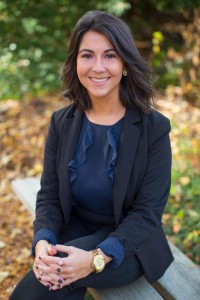Halloween’s Haunted Forest
Eleana Álvarez, the Venezuelan Commencement speaker
A German Class turned into a political debate
By Yaiza García García
UW-Whitewater German Club organized an event in collaboration with the German Class to discuss the past German Federal Elections and their results. The professor Ellen Boldt invited the German students to the meeting because she wanted to know the opinion of the students who are studying abroad in Whitewater this semester and also to get involved with them.

The party of Angela Merkel CDU party (“Blacks”) won the last election on the 24th of September with 33% and it’s her 4th Term in Office. In the second place, Martin Schulz’s party, SPD, with 20,5% and in the third place the AfD with 12,6% of the votes. It was the first time that an extreme right party entered in the most voted parties in Germany.
 One of the first questions was if they were really surprised by the results and what would they think would happen in the future, whether or not Merkel’s victory will be beneficial to the country and the world. The response was positive, in general, they were all very satisfied with the continuity of the chancellor because in their opinions she guarantees stability. The students said they at the beginning, they disagreed with many of Merkel’s policies, such as the ban on gay marriage. However, the Chancellor changed her mind and that was a crucial decision for many of the voters who changed their minds.
One of the first questions was if they were really surprised by the results and what would they think would happen in the future, whether or not Merkel’s victory will be beneficial to the country and the world. The response was positive, in general, they were all very satisfied with the continuity of the chancellor because in their opinions she guarantees stability. The students said they at the beginning, they disagreed with many of Merkel’s policies, such as the ban on gay marriage. However, the Chancellor changed her mind and that was a crucial decision for many of the voters who changed their minds.
Moreover, they seemed quite surprised and disappointed with the position of the far-right party, Alternative for Germany, or AfD, because their policies are too extreme. However, they understood it because the racism is still being a problem in Germany.
Professor Ellen Boldt said: “I couldn´t believe when they said that some of their family members have voted for them back I Germany while they are studying abroad.”
It was a good opportunity for American students to learn and see how young Germans are open-minded and can talk freely and respectfully about a controversial topic such as politics and elections. This is new for American students because in US young students and people, in general, tend to ignore these issues or directly prefer not to talk about it.
At the end of the class, an American student said: “I was amazed how this group of students who didn’t knew each other before coming to the US talked so fluently normal about their politics.”
My Digital self Assignment
To be a good journalist you have to read a lot and be on the social media.
When I enter in a news site, the first thing I read is the breaking news, then the international news and then I usually read the links with international terrorism, North Korea, etc. I’m monitoring North Korea situation right now because I find it very interesting. I think it’s important to know what’s happening at home and it’s too easy to find it thanks to the Internet, so I read everyday news from my hometown. In any case, for me, El País is the best news site, better than The New York Times, because of the immediacy of its news, its clear and clean design and the quality of the texts.
I usually use Google to find news but sometimes I use Tor Browser because I think that it protects better my privacy. When I consume news I always watch the video first if there’s one and then I read the text to get more detailed information. I don’t usually interact with graphics because they are boring, but it depends on the graphic. I think that multimedia format (videos and pictures) is the best one because it’s entertaining and sometimes you need to see an image to realize what is happening. I have to say that I’ve never interacted with the news by posting comments but I’ve emailed two or three reporters of news sites to get more information about topics, but just for university projects.
If we talk about social networks, for me, Facebook is not just a social media, it’s a source of news because there you can follow news sites pages and be informed about the latest news or even in life. I don’t use Twitter very often because in Spain is an old-fashioned thing. We use Instagram stories. Also, I usually read fashion and travel blogs, like those of influencers and Paco Nadal’s blog (journalist of El País).
I always try to make sure that the news I’m reading is accurate. First of all, I look where the information comes from, for example, a news site like The New York Times or El País are more reliable than one of a small village in the countryside because they don’t have the means to test the information. Several months ago something unthinkable occurred in Spain. One of the most prestigious journalists in the country made the biggest mistake of journalism, published a rather serious news in the media without having contrasted it enough before. After many investigations, it was discovered that everything was a lie and caused a lot of upheaval throughout the country. You have to be careful with the information that you publish.



